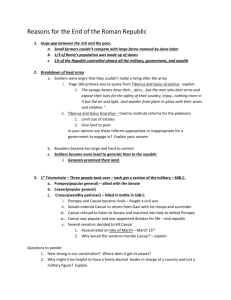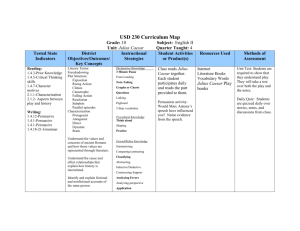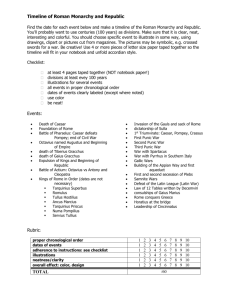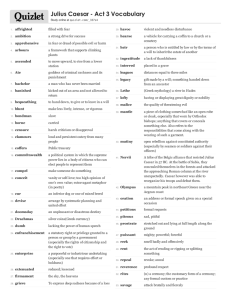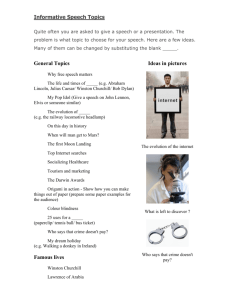Civ IA- PowerPoint from Lecture 12 Lecture 12
advertisement
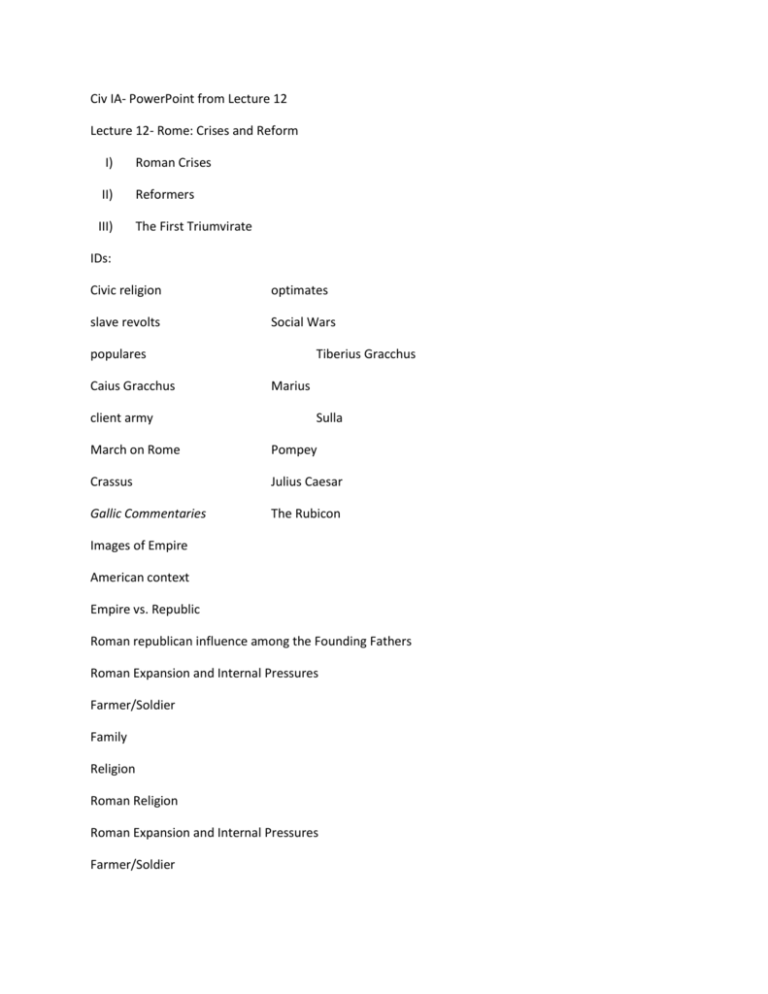
Civ IA- PowerPoint from Lecture 12 Lecture 12- Rome: Crises and Reform I) Roman Crises II) Reformers III) The First Triumvirate IDs: Civic religion optimates slave revolts Social Wars populares Caius Gracchus client army Tiberius Gracchus Marius Sulla March on Rome Pompey Crassus Julius Caesar Gallic Commentaries The Rubicon Images of Empire American context Empire vs. Republic Roman republican influence among the Founding Fathers Roman Expansion and Internal Pressures Farmer/Soldier Family Religion Roman Religion Roman Expansion and Internal Pressures Farmer/Soldier Family Religion Government - optimates - provincial governors 4 Signs of Strain Slaves Problems with Slavery Increase in number - c. 2 million by 100 BC Neglect in latifundia Revolts - 135 BC, 104 BC - 74 BC- Spartacus 4 Signs of Strain Slaves Provinces Attacks on garrisons Allies (socii) “Social War” (91-89 BC) Urban slums: Optimates and populares (reformers) II) Reformers The Gracci: Tiberius and Caius Gracchus Tiberius Gracchus (163-133 BC) Patrician background Populare Tribune in Plebian Assembly Tiberius Gracchus on land reform: “The wild beasts that roam over Italy have their dens. . . . But the men who fight and die for Italy enjoy nothing but the air and light; without house or home they wanter about with their wives and children. . . . They fight and die to protect the wealth and luxury of others; they are styled masters of the world, and have not a clod of earth they call their own.” Tiberius Gracchus Proposed a land commission Challenged the Senate Plebian assembly Expelled the dissenting tribune Octavius Death of T. Gracchus (133 BC) Further reforms Ran for re-election as tribune Senators killed him and some supporters Senate concessions Violent precedent Caius Gracchus (153-121 BC) Became tribune in 123 BC Even more ambitious Granaries, investigations Extension of citizenship Assassinated- lesson for reformers The Generals: Marius (c. 157-86 BC) Humble origins Military success Consul (107-100 BC) Client Armies Sulla (c.138-78 BC) Social Wars- 91 BC Another “new man” Elected consul Expedition to Asia Minor (88 BC) Conflict vs. Marius - Attack on Rome: -division: officers vs. soldiers Return and dictatorship (82-79 BC)- proscription III) First Triumvirate 1st Triumvirate (60 BC) The Army and the Senate The First Triumvirate: Pompey Crassus Julius Caesar Gnaeus Pompey (106-48 BC) Crassus Wealthy optimate Julius Caesar’s father-in-law Julius Caesar Became consul (59 BC) Sent to Gaul with a client army Military victories Gallic Commentaries “Crossing the Rubicon” Crassus dies- 53 BC Pompey turns the Senate against Caesar Senate recalls Caesar from Gaul Return to Rome Caesar’s Rise Julius Caesar and Reform Extended clemency Enlarged the Senate Populares: Free grain to 320K citizens Overseas colonies Land for army veterans The Roman “Republic” under Caesar Caesar’s Dictatorship The Ides of March
